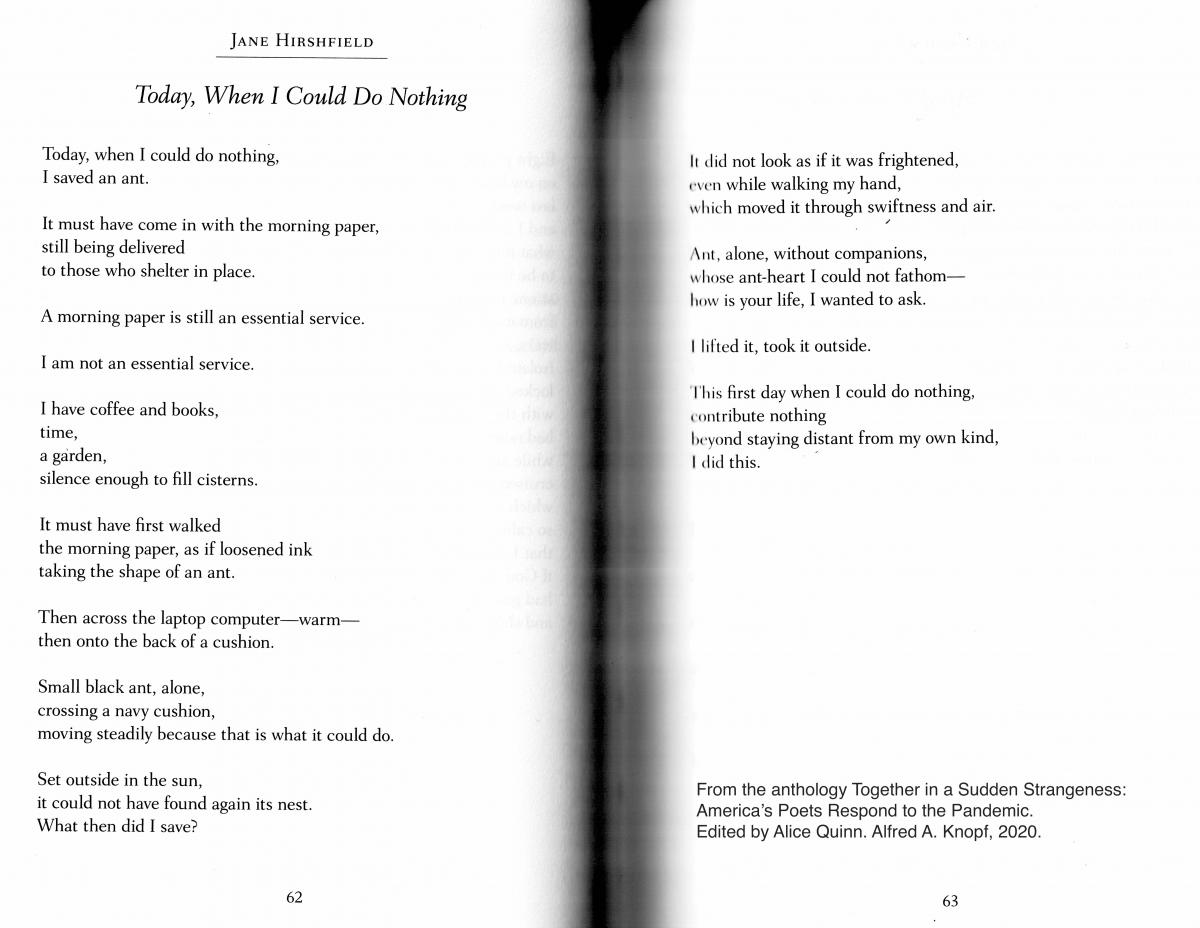A week ago, struggling to find a way to memorialize the unexpected death of a friend from college, I volunteered as a greeter at a vaccination site. First or second dose? Do you have a confirmation number? Do you feel sick today? The courtyard where we welcomed people cooled under the darkening sky. I wanted to linger, to look each person in the eye, but I mostly fumbled with IDs and vaccination cards, trying to speak loudly enough to be heard through my mask. Congratulations on getting your second dose! I said when I could, remembering how much those words had meant when said to me. Many of the other workers had been doing these tasks for weeks by now. They could recite the screening questions without missing a beat. They knew the ebb and flow of arrivals, how everyone shows up at once, followed by long minutes of no one. Under the blaze of floodlights, under the just barely visible light of the brightest stars, we participated in the miraculous and mundane intervention of the vaccine.

“Today when I could do nothing, / I saved an ant,” begins a poem by Jane Hirshfield written when the pandemic was still new. Hirshfield’s poem appears in Together in a Sudden Strangeness: America’s Poets Respond to the Pandemic, edited by Alice Quinn and swiftly published last year by Knopf. “I am not an essential service,” Hirshfield writes, numbering the gifts of her life at home while acknowledging the risk endured by others whose work is deemed necessary. Hirshfield gives her full attention to the errant ant, who, like the poet, carries on simply because “that is what it could do.” Hirshfield knows that her action might not save the ant in the end and that a distance divides her from this fellow creature, despite their closeness. The poem’s final stanza gestures toward both frustration at what can’t be done and the quiet will to do what is possible:
This first day when I could do nothing,
contribute nothing
beyond staying distant from my own kind,
I did this.
Today, as vaccines become available to more people, they offer a vital action that we can take to make a difference. In the spirit of Hirshfield’s poem, what actions, small or large, symbolic or concrete, have you taken in this time? If you have already been vaccinated, what did that action mean to you? Consider adding a stanza to the the Global Vaccine Poem project, a collaboration between our Poetry Center and Wick Poetry Center at Kent State University. Or write a poem about today, or any day, and the mundane, inspired actions we take as we carry on, one step after another across the world set before us.
To find a vaccine near you, check your state’s department of health website (Arizona’s is here), or visit Vaccine Finder. Check out the CDC’s guidelines for masking and social distancing for vaccinated and unvaccinated people.

